corpora.ai: A new release!
The work completed to compile this latest version spans all areas of our wider systems and our core engine, focussing on efficacy and usability.
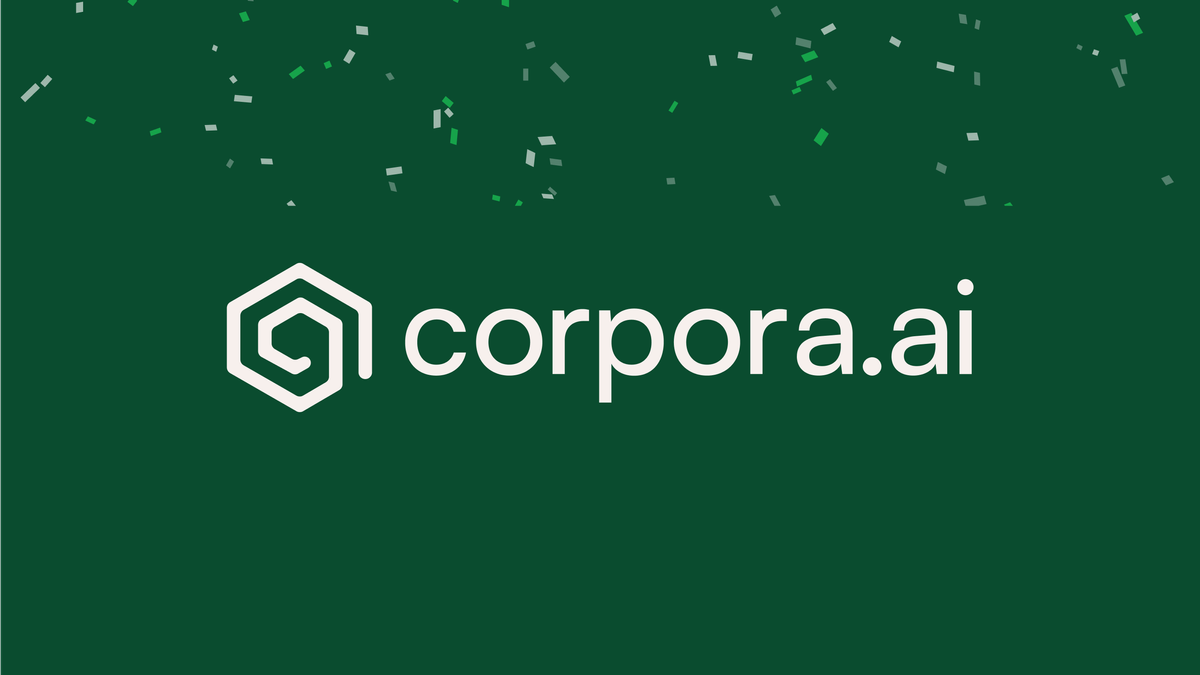
Functionality, Efficacy and Usability
Read how we have redefined each within the corpora.ai platform
This latest release includes vast and detailed amounts of work, most of which has been done in the interest of efficacy and usability. This article will serve as an overview of what has been included, how it works and what is in the pipeline.
The work we have done to compile this latest version spans all areas of our wider systems and our core engine. Below is a list of the key functionalities that have been added or improved:
- Hashtags
- Citations Popovers
- Signup User Experience
- Prompt Optimization
- Query Settings and Future Functionality
- CPL (Corpora Prompting Language) optimizations
- General Access and Google Listings
Hashtags
One of our key pieces of user-facing functionalities included in this release is Hashtags. Hashtags are a mechanism for labelling and grouping generated research by user-defined classifications. Why is this important? Why have we prioritized this work?
We believe this is incredibly important based on user feedback and based on our own mileage during testing. While pursuing an objective, such as discovering and collating possible focal points of research for treatments of conditions, a user will definitely run multiple queries in attempt to gain as much information as possible on the subject. With hashtags, when each of these queries and resulting books are tagged, the returning user can re-read or view their previous progress with one query of the hashtag.
We have written a far more detailed and helpful article on how hashtags can be used here.
Citation Popovers
For newly generated content, citations now have a new look and a popover! Why is this so exciting? Well, it saves the user time to check the source of the content - this can streamline the verification of research - it can be used as a filter to determine whether the source content is worth reading - which again, optimizes research for the user.
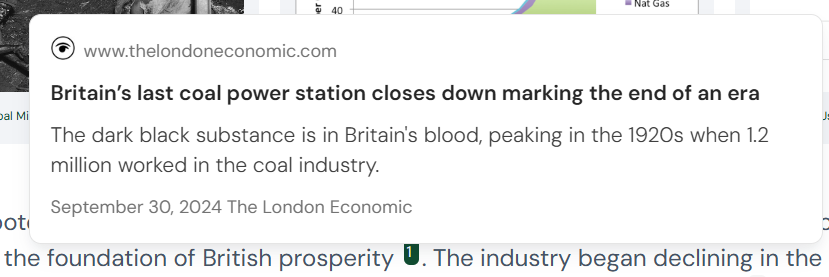

This is a change that is made solely in the interest of improving the user experience. The easier and quicker it is for users to achieve their research goals, the better we are as a product.
Signup Experience
There are two key changes to the Signup experience that users will notice. Firstly, it looks a lot better and is a lot simpler than before. This part of the work has been completed with the feedback and repeat interaction with users of the application. The second part of the work, the simplification, has also been undertaken at the recommendation of our users.
The signup form is now a lot cleaner, and a lot more impactful to the user. Previously, the form and flow had users receiving emails, to follow to a hidden page, to verify and authenticate by creating their password, along with a link to the early access form which confused users. Now, there is only the one form, which is far more logical and user-friendly.
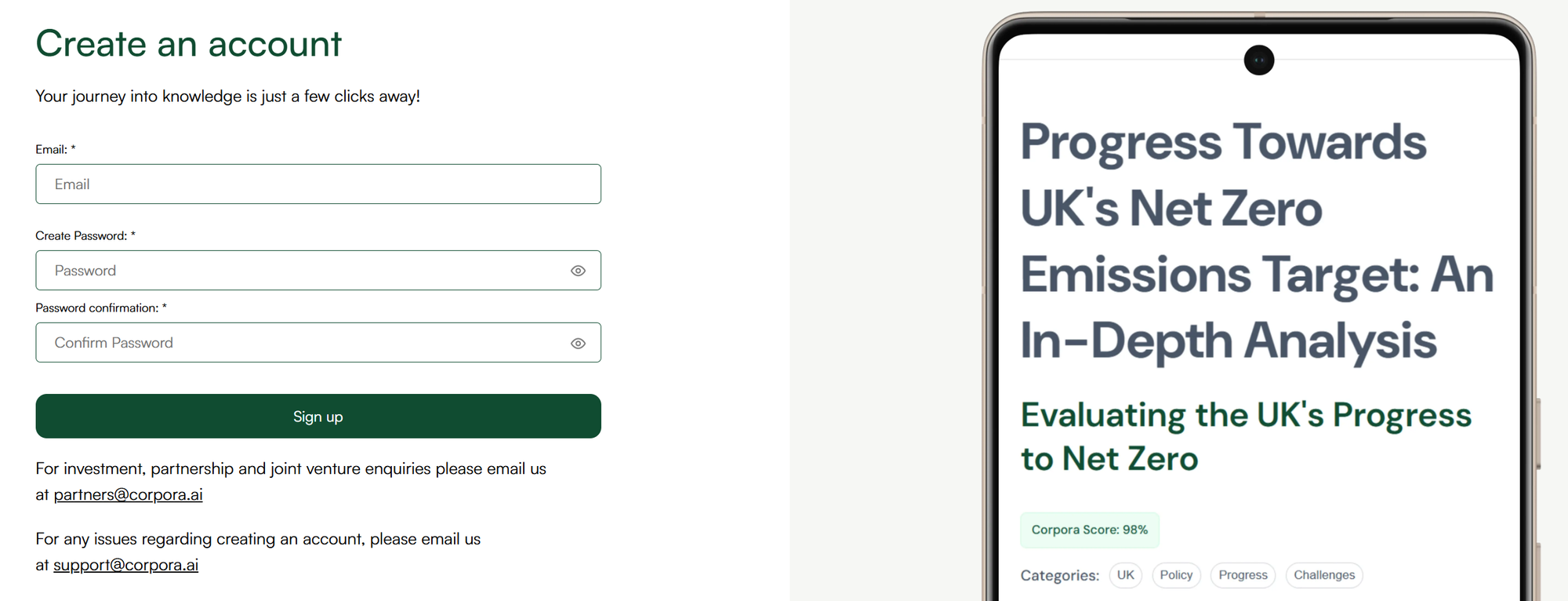
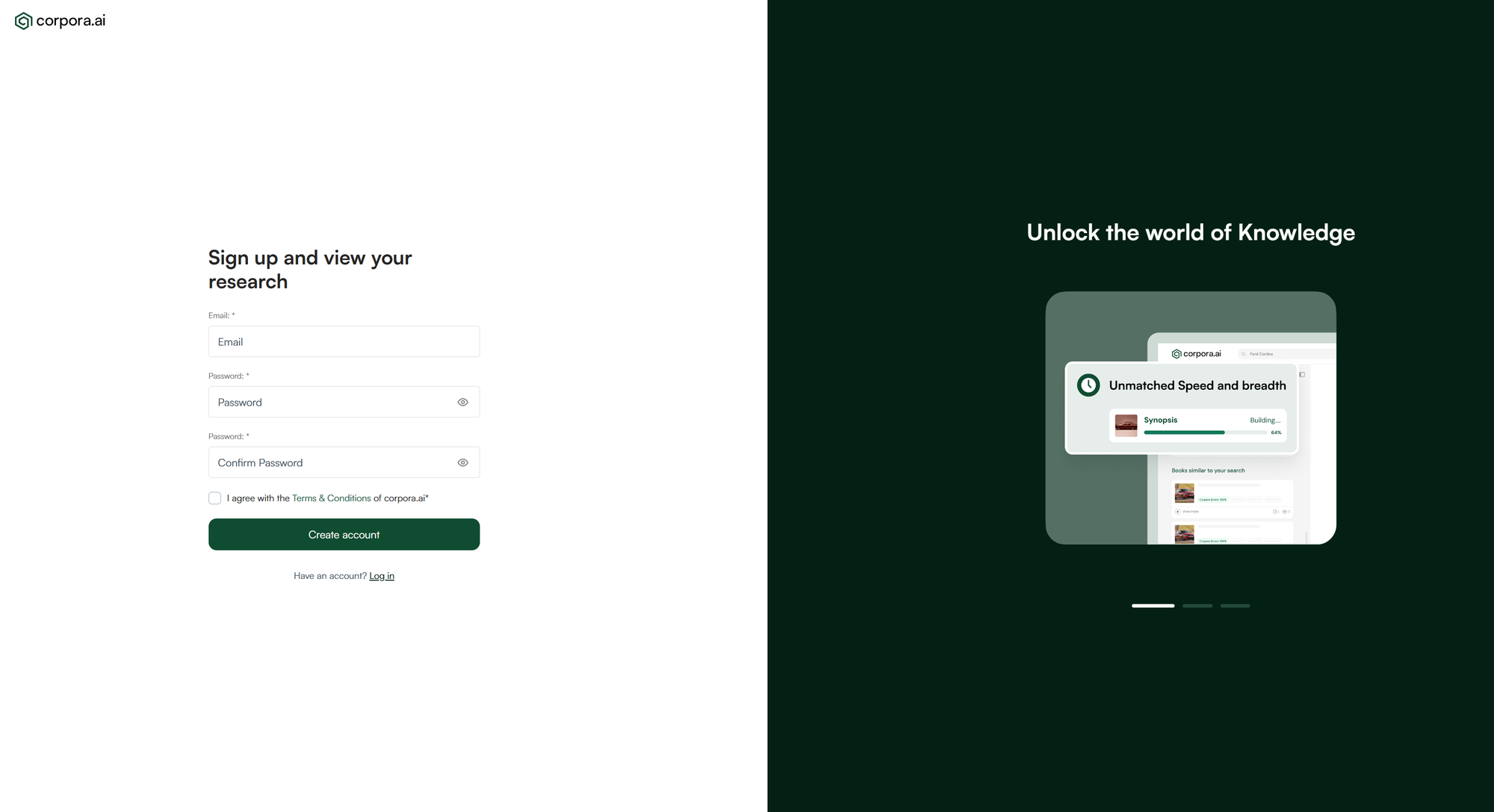
For the dedicated signup page (the second photo in the above gallery), we wanted there to be a clear and helpful experience for the user. The slideshow on the right shows shots of the platform while the form remains consistent and simple.
If you don't have an account, signup now and begin your research revolution.
Prompt Optimization
As part of our endeavor to be the cutting edge in AI Research and AI Content generation, we are constantly reviewing and trialing changes to our prompts. In this release we have near-enough rewritten every prompt we utilize, all in the interest of improving the efficacy of our content. The proof is in the research books generated from now on, which contain far more accurate information.
We also have made numerous changes to the prompts in the interest of performance, as well as the process of generating each book. Some prompts have been amalgamated and mutated slightly to provide the required output to be supplied along with enriched data to the next step in the overarching process to generate a research report.
Query Settings & Future Functionality
We have introduced a new page where a user can control and fine-tune their research interface. In this initial release of the page users can manage all of their hashtags and associated books. The screenshot below depicts the hashtag functionality of the page.
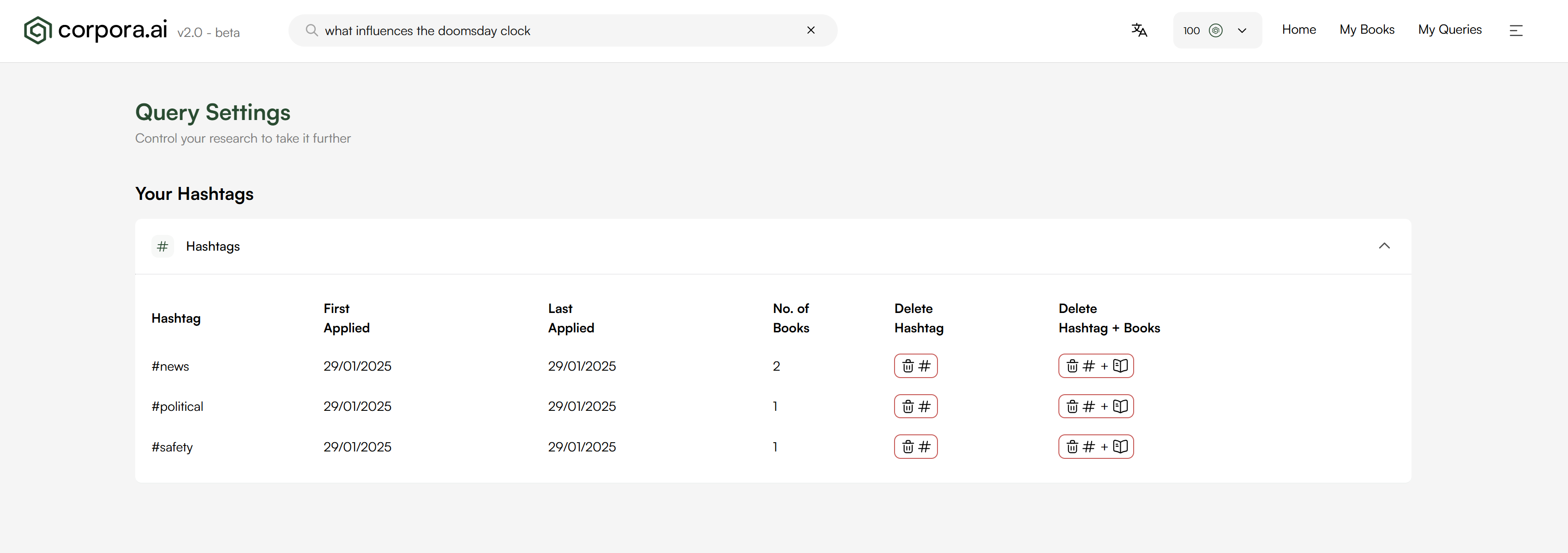
Future functionality will allow users to be able to control their research interface in the form of granular controls over sources and date ranges as well as being able to store and reuse these filters over multiple research journeys. Below is a sneak-peek of how we envisage this working.
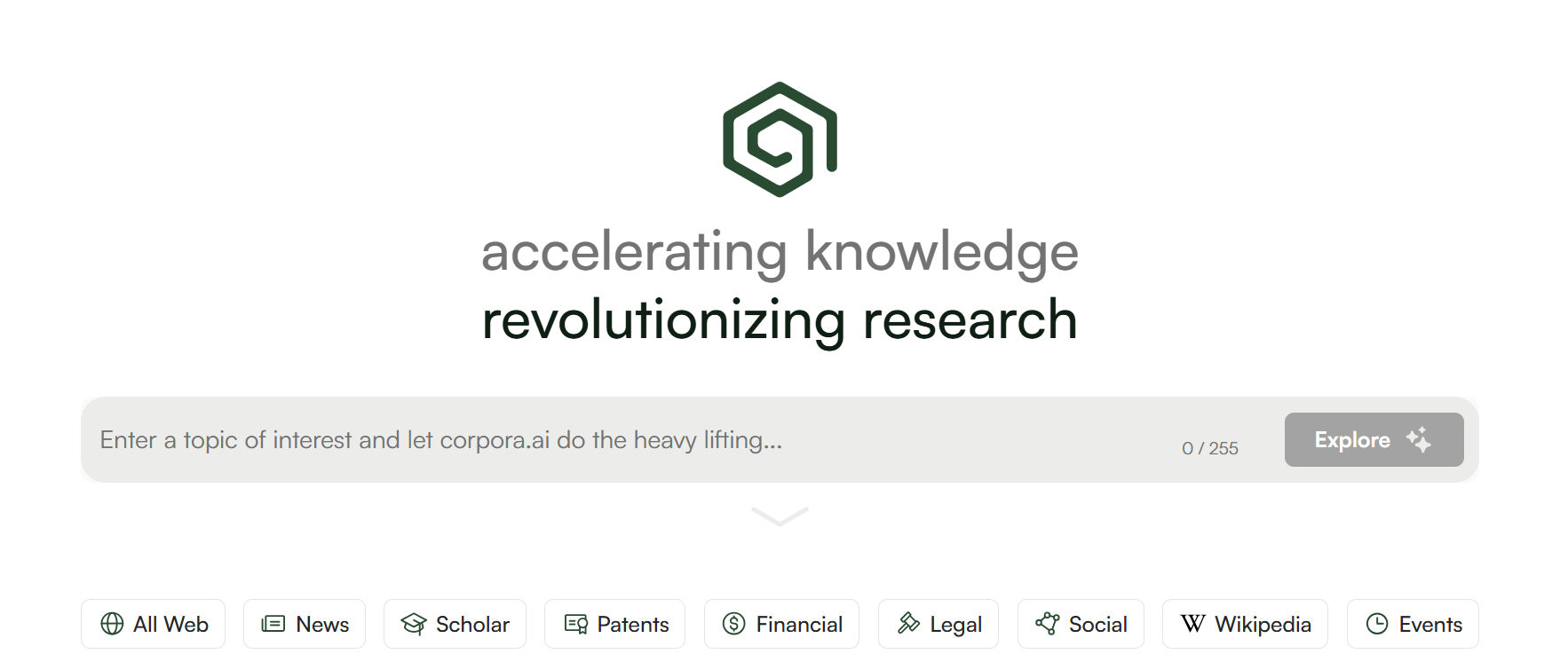
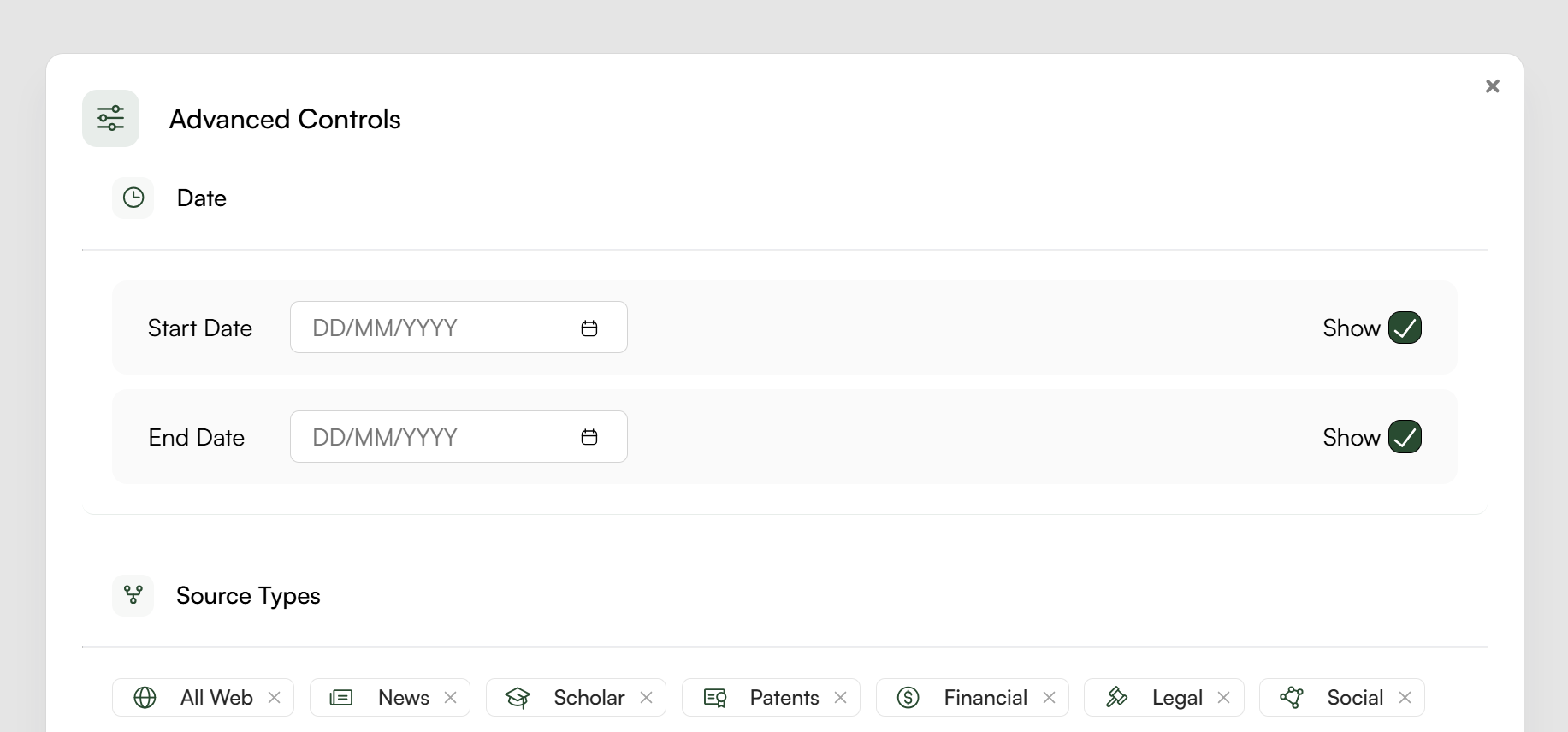
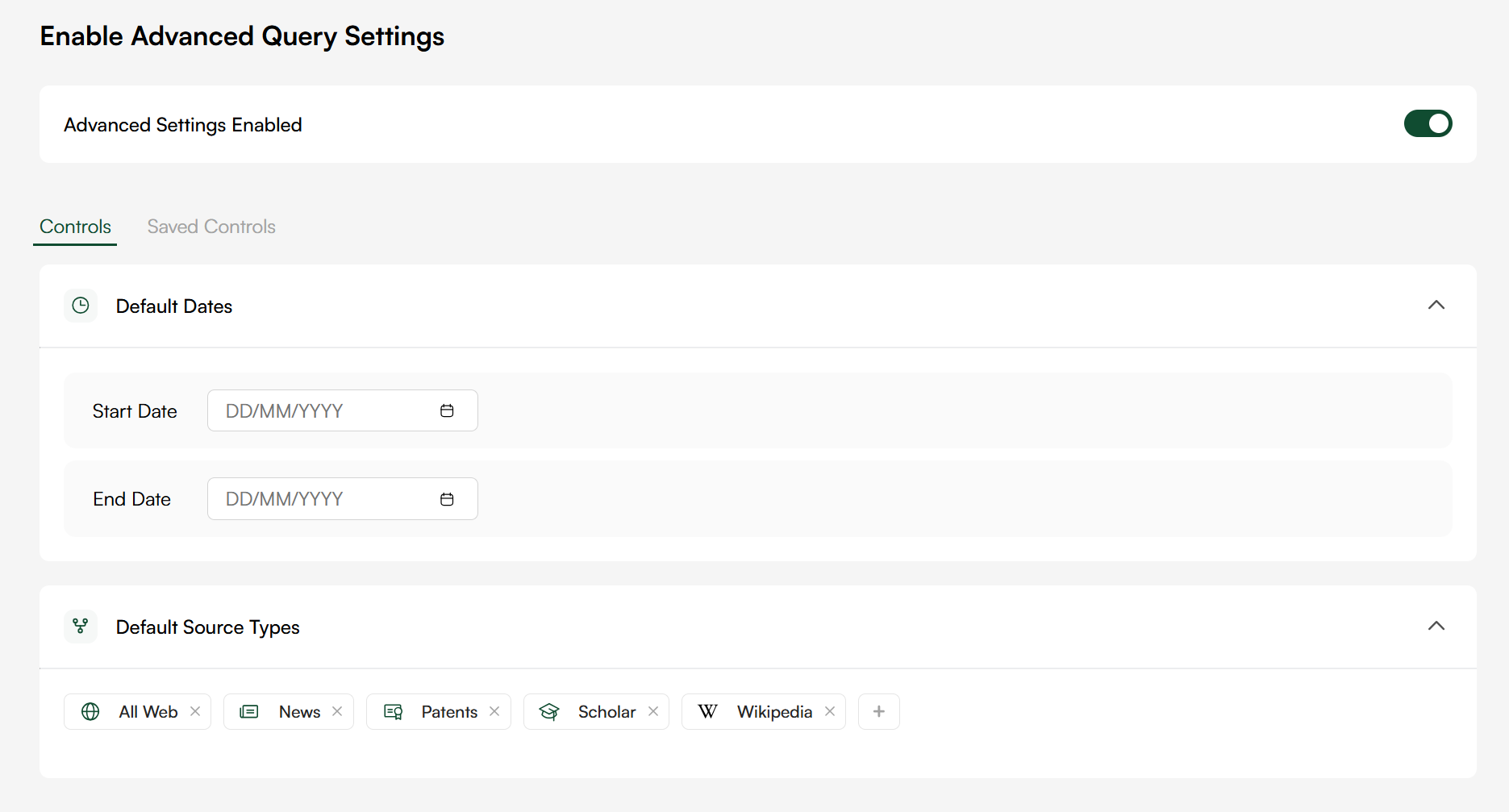
The above screenshots show how users can choose whether to show the controls on the home screen, how users can add advanced controls quickly from the home screen and the quick-access source filters on the home screen.
CPL Optimizations
We previously wrote about the CPL, so if you are unfamiliar, read about the Corpora Prompting Language.
Improvements! Our work on the CPL has increased the usability of the language massively. We have improved the accuracy of source filtering within the prompt as well as applying the source filter across all languages more reliably.
Temporal filtering is now greatly improved allowing users more flexibility in defining these constraints. This also has been worked upon tirelessly to ensure reliability across languages and date formats.
General-access
We have entered general access which means we are now starting to allow generated research books to be listed on SERP sites to allow our platform to grow organically. This is a momentous time for our team who have spent years working on corpora.ai and all of the unseen proprietary systems that allow corpora.ai to work. We look forward to the journey from here and have many plans for where corpora.ai as a company and product will go.
We welcome all feedback via any of the following channels:
- Email: support@corpora.ai
- X: https://x.com/corpora_ai
- LinkedIn: https://www.linkedin.com/company/corpora-ai



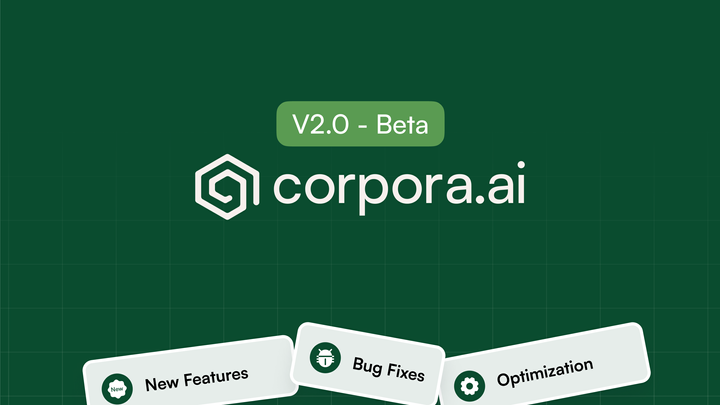
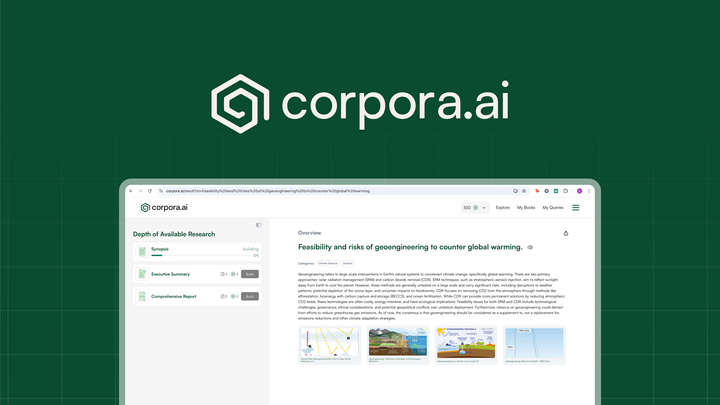
Comments ()